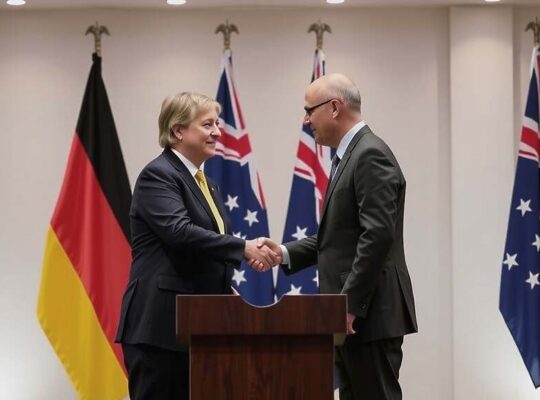The European Union’s naval operation “Irini” (EUNAVFOR MED IRINI), tasked with enforcing a United Nations arms embargo against Libya and combating irregular migration towards Europe, is facing potential termination. According to reports from several high-level EU diplomats, the internationally recognized Government of National Unity in Libya, currently seated in Tripoli, is unwilling to renew the invitation that forms the basis of the UN mandate permitting the operation.
Discussions surrounding the extension of the UN mandate stalled during a meeting between EU representatives and Libyan government officials on June 20th. Despite offers from Brussels, the Libyan Government of National Unity reiterated its reservations regarding a renewal. The UN mandate was previously extended for only six months, until November, instead of the usual year – a compromise reached after the Libyan government initially strongly resisted any extension.
EU diplomats express concern that the potential end of the operation will hinder efforts to combat human smuggling and could lead to increased irregular migration from Libya toward Europe. The operation, involving 23 EU member states, commenced in spring 2020 and also aims to prevent illegal oil exports from Libya and provide training for the Libyan Coast Guard and Navy.
The precise reasons for the Libyan government’s reluctance remain unclear to European officials, prompting speculation within diplomatic circles. Potential factors include the involvement of both the Government of National Unity and the rival, Russian-backed government of General Khalifa Haftar in profiting from human smuggling, as well as concerns that the enforcement of the arms embargo may disproportionately impact either side of the ongoing conflict for control of the country and its oil resources.
While maintaining the operation without a UN mandate and a formal invitation from the Libyan government is an option – potentially through an EU resolution – it would significantly limit its effectiveness. Under such a scenario, EU vessels would be restricted from operating within Libya’s 12-mile coastal zone, a critical area for combating irregular migration. Furthermore, the possibility of internal disagreements within the EU regarding the scope and design of a new mandate is anticipated, with Italy reportedly advocating for expanded authority to inspect vessels.
Currently, approximately 850,000 migrants and refugees reside in Libya, with a recent influx of around 90,000 since June 2024. The sharp increase in migration, primarily impacting Italy and Greece – where over 8,500 migrants have arrived in Crete since the beginning of the year – has prompted Greece to implement a temporary suspension of asylum applications for individuals arriving from North Africa. EU Home Affairs Commissioner Magnus Brunner recently visited Libya with several EU interior ministers, though a meeting with renegade leader Haftar was denied.












